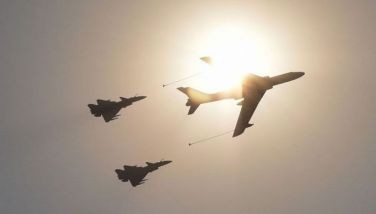Deeply-divided EU to hold emergency summit on migrant crisis
BRUSSELS — European Union President Donald Tusk urged divided EU nations to set aside their differences and work together to secure the bloc's borders as Europe struggles with its biggest refugee emergency in decades.
Around half a million people have fled to Europe so far this year in search of sanctuary or jobs. As numbers swell, nations have tightened border security. Hungary has a razor-wire fence along its border with Serbia.
Countries in eastern Europe with little recent experience of migration are trading barbs over who is to blame, while Balkans neighbors Serbia and Croatia — who were at war in the early 1990s — issued threats and ultimatums.
"We must prepare a concrete plan, which must finally appear in place of the arguments and the chaos we have witnessed in the last weeks," Tusk told reporters before chairing the summit.
"The most urgent question we should ask ourselves tonight is how to regain control of our external borders. Otherwise it does not make sense to even speak of a common European migration policy," he said.
As the leaders headed to Brussels, a further 5,000 migrants were converging on the Austrian border with Hungary, police said.
Serbia, meanwhile, gave EU member Croatia an ultimatum to reopen its border for all cargo transport by midnight yesterday or face unspecified retaliation.
Among the outstanding issues that Tusk, the summit's official host, wants addressed is increasing assistance to EU member nations that are receiving the brunt of the migrant influx, and improving cooperation with non-EU countries in the Balkans and Turkey, which is now home to almost 2 million migrants - many of whom have fled Syria's civil war.
Tusk, who recently visited the Middle East, also wants to discuss diplomatic efforts to end the Syria conflict.
The EU president said one issue requires urgent attention: increasing contributions to the UN's World Food Program to help it provide critically-needed food supplies to 11 million people in Syria and the region.
Arriving for the summit, Dutch Prime Minister Mark Rutte said that would help prevent people feeling "almost forced to come to Europe because there is too little food."
On Tuesday, the 28-nation EU took a modest step toward dealing with the issue by agreeing to relocate 120,000 asylum-seekers to ease the strain on Greece and Italy, which are on the front line of the migrant flood. But the decision bared the wide divisions that Europe's greatest refugee crisis since World War II has spawned, with the Czech Republic, Slovakia, Romania and Hungary voting against it.
Even after the EU plan was adopted, Czech Prime Minister Bohuslav Sobotka denounced it as a "bad decision." On yesterday, Slovak Prime Minister Robert Fico said his country will try to block the deal in an EU court.
"We won't implement this decision because we think it can't work," Fico also said.
The man who chaired Tuesday's meeting, Luxembourg Foreign Minister Jean Asselborn, said the figures were "accepted by the member states on a voluntary basis," but the European Commission signaled that the dispute is far from over.
"A decision is a decision regardless of the way you voted," its vice president, Frans Timmermans, said yesterday. "The decision is legal, it's valid and it binds all member states."
Tusk said he recognized EU countries have "different experiences and perceptions" and that there are "no easy solutions." But he said the bloc must reach agreement on a comprehensive strategy and sound migration policy to deal with a challenge that he said will last for years. The crisis, he said, is a test of Europe's "humanity and responsibility."
"The current 'migration policy' is a sum of despair of the victims fleeing war and persecution, of their determination in searching for a better life, of the cynicism of the smugglers, and too often, of the refugees' and migrants' tragic fate," Tusk said.
Before the summit, the European Commission's top official in charge of relations with the bloc's neighbors said that he hoped that 1 billion euros ($1.12 billion) could be drummed up for a "trust fund" to help Syrian refugees.
The official, Johannes Hahn, also said that the European Commission is in discussions with Turkey about freeing up some of the funds earmarked for that country's EU membership process to use for dealing with the refugee influx there.
"We could raise up to 1 billion euros over the next two years for Turkey," he said.
- Latest
- Trending




























